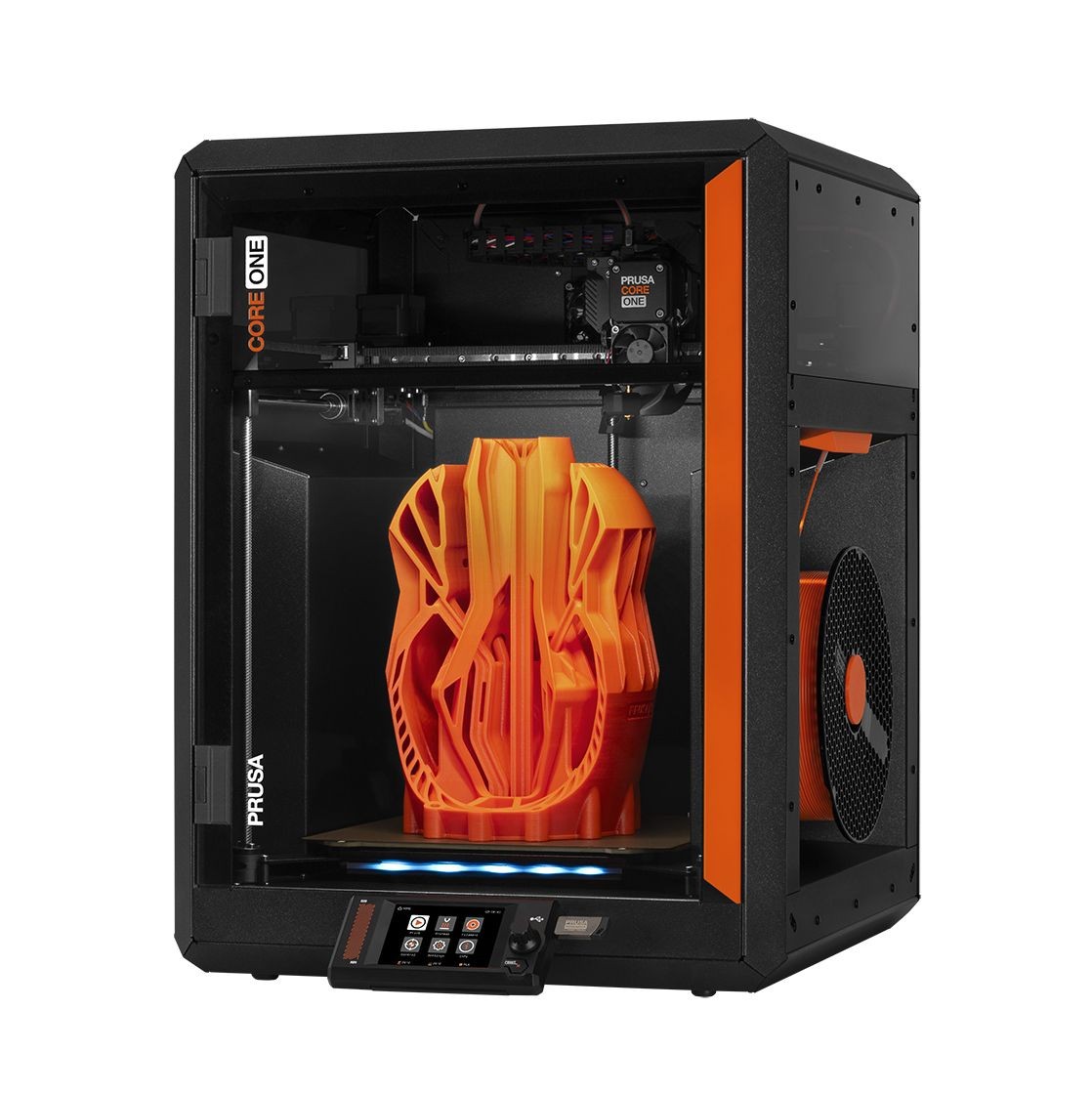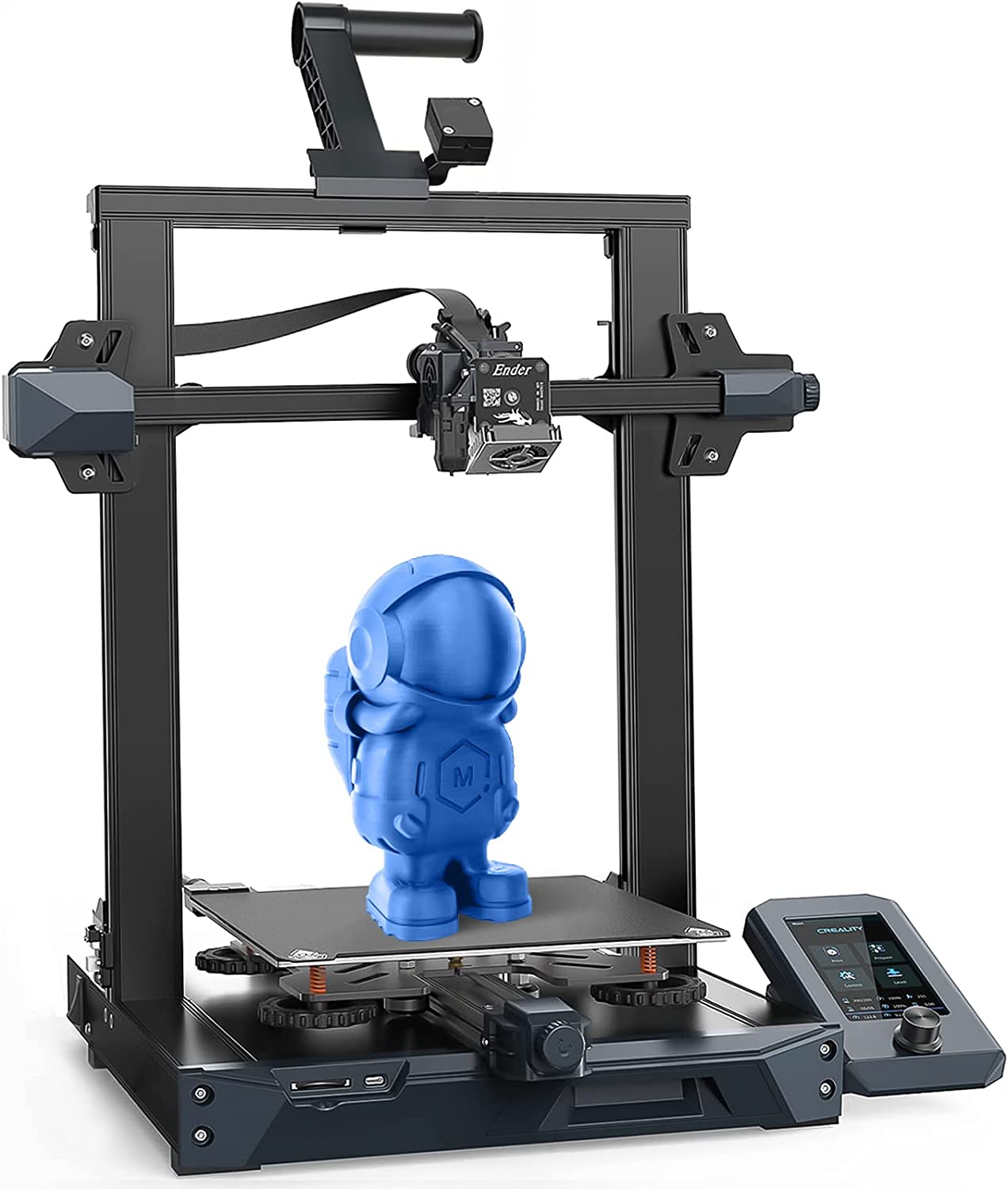Compare Core One vs Ender 3 S1
Comparison between the best 3D printers
Choose the best 3D printer at the best price. The cheapest 3D printers are here.
Buy a 3D printer here with 3D Fila.
 |
 |
|
| Model | Core One |
Ender 3 S1[BUY Ender 3 S1] |
| Printing Material | Filament | Filament |
| Buy Filament for Prusa Core One | Buy Filament forCreality 3D Ender 3 S1 | |
| Estimated price | $1200,00 | $399,00 |
| Manufacturer | Prusa | Creality 3D |
| Release Year | 2025 | 2021 |
| Print Volume [mm] | 250x220x270 | 220x220x270 |
| Printer Size [mm] | 385x340x620 | 455x490x625 |
| Weight [kg] | 14 | 9,1 |
| Power Loss Recovery | YES | YES |
| Enclosed printer | YES | NO |
| Bed Leveling | Automatic | Automatic |
| Filament End Sensor | YES | YES |
| Bed type | Heated | Heated |
| Power supply system | Direct Drive | Direct Drive |
| Standard nozzle | 0,4 | 0,4 |
| Maximum Nozzle Temperature [°C] | 300 | 260 |
| Maximum Bed Temperature [°C] | 120 | 100 |
| Maximum printing speed [mm/s] | 500 | 180 |
| Filament holder | YES | YES |
| Camera for supervision | NO | NO |
| Recommended filaments | PLA, TPU, TPE, HIPS, ABS, PETG, WOOD, PC, PA, PVA, ASA | PLA, TPU, PETG, ABS |
| Recommended slicers | Cura, Prusa Slicer, Orca | Cura, Simplify, Slic3r, IdeaMaker, Creality Slicer e outros |
| Maximum Resolution [mm] | 0,01 | 0,05 |
| Processor | xBuddy 32 bit | |
| Display | Touchscreen 3,5'' | Display 4,3'' |
| Power Supply | 240 W | |
| Connectivity | SD | SD / USB |
| Operating systems | Windows, Linux e Macbook | Windows, Mac, Linux |
| Date of registration in the system | 2024-11-27 | 2023-03-28 |
| Release date | 2025 | 2021 |
| Extra features | The Prusa Core One is a CoreXY 3D printer featuring a robust steel frame, a 3.5" touchscreen, and a heated chamber for technical filaments. It offers 360° cooling for improved print quality and supports upgrades from the MK4S model. With a compact design, a print volume of 270x250x220 mm, and compatibility with the MMU3 for multi-color printing, it stands out for its ease of maintenance, precision, and speeds up to 260% faster than the MK3S+. | The Creality Ender 3 S1 printer stands out for its easy assembly and quiet operation. It has automatic bed leveling and a direct drive system, providing high-quality prints. The design is sleek, with flat cables in mesh sleeves and a magnetic bed. The Creality Sprite extruder is lightweight and developed in-house, supporting a maximum nozzle temperature of 260 degrees. It includes a filament run-out sensor and power loss recovery, with a dual Z-axis for greater support and stability. The build plate is flexible steel with PC coating, and the printer supports a wide variety of filaments. |
| Support for multiple colors and materials (AMS and CFS) | YES | NO |
Notes * |
||
| Cost-benefit | 7 / 10 | 7 / 10 |
| Hardware | 5.4 / 10 | 2 / 10 |
| Tela | . | . |
| Print volume | 3 / 10 | 3 / 10 |
| Performance | 4 / 10 | 1 / 10 |
| [BUY Ender 3 S1] |
Conclusion |
| In conclusion, the choice between the Prusa Core One and the Creality Ender 3 S1 largely depends on priorities such as budget, print quality, and feature requirements. The Prusa Core One, priced significantly higher, offers a more advanced set of features including a larger print volume, enhanced printing speed, and better filament versatility. Its robust design and various upgrades position it as an excellent option for those seeking high-quality prints with a range of materials, along with advanced capabilities like multi-color printing. The printer's enclosed structure also enhances reliability and precision, making it suitable for technical filaments that require controlled environments. On the other hand, the Creality Ender 3 S1 serves as a more accessible option for hobbyists and beginners. While it comes at a lower price point, it still provides automatic bed leveling and reliable print quality, making it a strong contender for those looking to enter the world of 3D printing without significant investment. Its lightweight design and ease of assembly further add to its appeal for newcomers. Both printers score similarly in cost-benefit, but the Prusa Core One's outperformance in hardware and performance metrics may justify its higher cost for users with greater printing demands. Ultimately, the best choice will depend on individual needs, willingness to invest, and desired print capabilities. |

